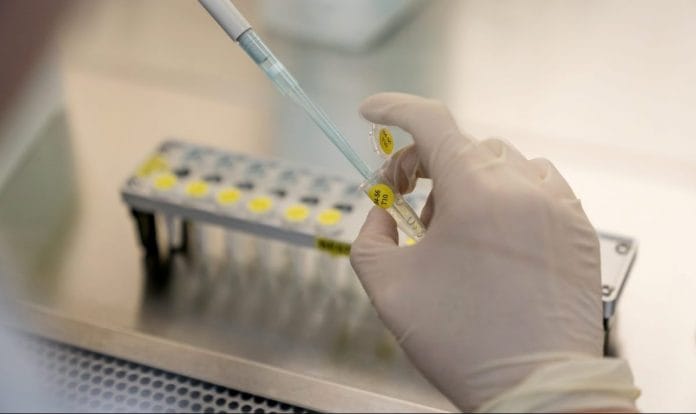Washington: A U.S. health official said Friday that hundreds of thousands of doses of coronavirus vaccines have already been manufactured in hopes that at least one of the candidates might succeed in clinical trials.
The Trump administration’s “Operation Warp Speed” program has reached agreements for eight coronavirus vaccine candidates that are in various stages of development, none of which have yet been approved or authorized for use.
Paul Mango, deputy chief of staff for policy at the U.S. Department of Health and Human Services, said three of those experimental shots have already been produced at mass scale, with hundreds of thousands of doses ready to be deployed should they receive clearance from the Food and Drug Administration. Three other candidates will soon go into manufacturing, he said.
The final two vaccine candidates in Operation Warp Speed’s portfolio have not yet been named by the White House, though health officials recently said they’ll soon go into human trials.
Operation Warp Speed brings together HHS, the Biomedical Advance Research and Development Authority and the Department of Defense, as well as other agencies, to expedite the development, manufacturing and delivery of inoculations and treatments for Covid-19.As a handful of vaccine makers accelerate their candidates through late-stage clinical trials, Warp Speed is working with states, cities and distributors on how to get hundreds of millions of doses of a vaccine to the American public by mid-2021.
“At first there will likely be a limited supply of one or more of the Covid-19 vaccines because limited doses will be available,” Robert Redfield, the director for the Centers for Disease Control and Prevention, told reporters on Friday. Redfield said which groups get priority in an initial vaccination campaign will depend on the shot that’s ultimately green-lit by regulators.
Who Goes First?
Covid-19 vaccines have the potential to perform differently in various racial and ethnic groups, age demographics, and populations with underlying health conditions. Clinical trial data that illuminates each shot’s safety and efficacy in these sub-groups will inform who is first in line to get them.The various Warp Speed-acquired vaccines will also have different storage requirements, Mango said. The U.S. is custom-tailoring distribution plans with each company.
Pfizer Inc., for example, is developing containers for storing and distributing a vaccine it’s developed in partnership with BioNTech SE. If successful in the clinic, the New York-based drugmaker won’t be distributing its shot through McKesson Corp. as the rest of the Operation Warp Speed contract will.
The contract with Pfizer includes vaccine delivery “to the places where we direct it,” Mango said.
Current distribution plans assume that any Covid-19 vaccine will only have an emergency use authorization, which doesn’t provide as much flexibility as a full approval, Redfield said.
“If in fact it turns out that it’s licensed at the time it’s distributed, the distribution plans will be reevaluated to see if that provides any greater flexibility to the plan,” he said.
Even if a coronavirus vaccine does get full approval, Redfield said it could still be pulled from the market if once-healthy patients later exhibit adverse side effects. The U.S. plans to monitor patients’ long-term health after inoculation, he said.-Bloomberg
Also read: 9 reasons why Covid vaccine will be widely available in 2021






